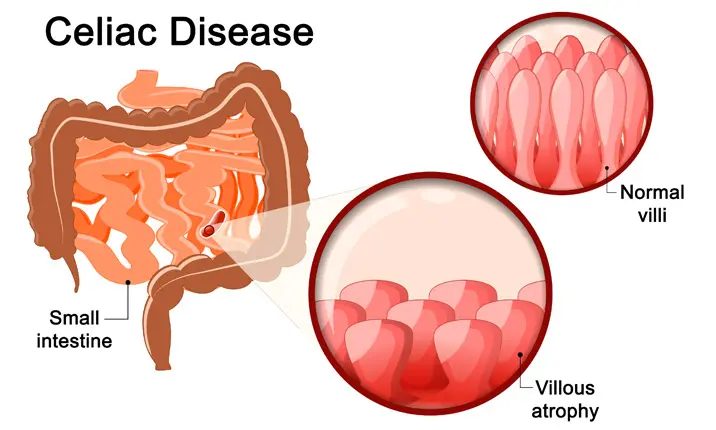You may have seen articles about anti-gluten diets such as 'Whole-30' circulating around the Internet, claiming to make you feel significantly healthier. Books such as Wheat Belly by Dr William Davis also entice many people with their 'lose weight fast' taglines. They make bold claims, but are they true?
While popular or 'fad' diets may seem enticing, those who suffer from certain conditions like irritable bowel syndrome (IBS), or those who are sensitive to gluten (a protein found in wheat, rye, and barley), such diets can cause many problems.
Some diets recommend extreme steps such as drastic reduction in calories, completely eliminating certain categories of food, or consuming a highly restricted diet. For someone who may be sensitive or intolerant to certain types of food, these diets may have an adverse effect on your health, especially if you are not getting the nutrients you need.
If you suspect you have a food-related sensitivity like IBS, gluten intolerance, or celiac disease, you can try to temporarily eliminate it from your diet to see if your symptoms improve. This way, you can systematically identify potential triggers rather than attempting fad diets.
Moreover, as these conditions are often misunderstood, it's best to get expert advice before embarking on any kind of specialised diet. Here, Dr Gwee debunks the 5 most common myths about gluten intolerance and how they compare against other common dietary sensitivities.
Gluten Intolerance Myth #1: Celiac disease, gluten sensitivity, and wheat allergy are the same
Although all 3 conditions involve an intolerance of wheat proteins, they are different conditions.
Celiac disease
Celiac disease is an autoimmune disorder where ingestion of gluten causes damage to the intestinal lining, generating an immune response that could cause inflammatory reactions in many parts of the body. Celiac disease is the most severe form of gluten intolerance, is usually genetically inherited and has over 200 symptoms.
The most common Celiac disease symptoms include:
- anaemia
- stunted growth
- infertility
- development of other disorders such as multiple sclerosis and epilepsy
Gluten sensitivity
Gluten sensitivity is a digestive disorder where a person reacts aversely to gluten. Most people who suffer from gluten sensitivity experience mild symptoms and disturbances. However, in some, gluten sensitivity can lead to impaired absorption of important nutrients such as vitamin B12, which in turn may explain the fatigue that these patients report.
Common gluten sensitivity symptoms include those of the gastrointestinal tract such as:
- diarrhoea
- bloating
- gas
This condition is currently labelled as non-celiac gluten sensitivity (NCGS). NCGS can be more difficult to diagnose than celiac disease as the changes in blood tests and intestinal biopsies are more subtle and difficult to detect. Thus, it often requires more detailed and careful testing with highly sensitive tests.
It is important to make a firm diagnosis of NCGS as many patients who appear to have symptoms to gluten, may actually have wheat intolerance or other forms of food intolerance. It is important to understand that the term wheat, or other food, intolerance simply means that a person develops certain symptoms which they suspect to be triggered by that food.
Food intolerance
In the large majority of food intolerance it is to the poorly digested, and easily fermentable, constituents of these foods. In general, with these foods, the majority of people (regardless of whether they complain or not) will develop symptoms of bloating and gas if a large quantity is consumed. This type of food intolerance can usually be predicted, and diagnosed by experienced physicians, without the need for any testing.
Wheat allergy
On the other hand, it is important to make a proper diagnosis of wheat allergy, which is an immune reaction to proteins found in wheat, and can be life-threatening. Simply put, it is a food allergy. People with wheat allergies should avoid consuming all wheat products.
Symptoms of a wheat allergy include:
- difficulty breathing
- rashes
- swelling
Do you suspect you have one of these conditions? Visit a doctor to get a proper diagnosis and diet recommendations.
Gluten Intolerance Myth #2: Cutting out gluten-based foods is a healthier option
Despite what trending diets claim, completely cutting out gluten-based foods from your diet may not be good for you. For example, some gluten-based foods are key sources of nutrients such as iron, calcium and B vitamins as well as fibre, which are important parts of a balanced diet.
If you haven't shown any symptoms of gluten intolerance, have no family history of the condition, and more importantly, no official diagnosis of gluten sensitivity, it would be a shame to deprive yourself of your favourite sandwich or pasta! Gluten only poses a danger to people whose bodies have an allergic, or immune driven, response to it. In most cases, when a person feels discomfort after eating certain foods, it is intolerance, not an allergy. Food intolerance is generally harmless, and can be managed by just reducing the total amount eaten at one time, and taking them in small quantities.
However, it is also important to note that, while the evidence suggests that Caucasians are predisposed towards this condition, this does not mean that it does not affect Asians.
Should you choose to remove gluten-based foods from your diet, it is important to supplement your diet to replace any important nutrients you may be missing. It is important that you consult a doctor with interest in this condition for a diagnosis based on validated tests.
Gluten Intolerance Myth #3: I should start my child on a gluten-free diet
A common question from parents is: "Since children can develop symptoms of gluten sensitivity, should I start my child on a gluten-free diet from a young age?"
When you restrict your child's diet, they may lack crucial nutrients such as vitamin B, antioxidants, and iron. On top of that, you'd also be depriving them of calories, which are essential for your child's growth and development. As such, by cutting out gluten from their diet, you might cause them to suffer from nutrient deficiency, amongst other health issues.
However, for children who may be genetically predisposed, or could be exhibiting signs of reacting to gluten, going on gluten-free diet may be necessary. Should this be the case, it is important to consult a paediatrician who has expertise and interest in gluten sensitivity. In children who are truly reacting aversely to gluten, a restricted diet could contribute to impaired growth and you will need expert advice to ensure your child receives the nutrients they need for healthy growth and development.
Gluten Intolerance Myth #4: I can't eat wheat if I'm sensitive to gluten
All grains (except rice) contain protein that is theoretically gluten, but people with celiac disease and most gluten allergies only react to gluten found in wheat, barley, and rye. Foods such as oats contain low levels of gluten, if any at all. However, oats have high levels of sugar known as fructans, which causes bloating, gas, and sometimes diarrhoea.
Most people with celiac disease can tolerate gluten-free oats. However, problems might occur if oats are produced in the same place as wheat, barley, and rye, as the oats can be contaminated by these grains. The safest grain for people with celiac disease is rice.
People who truly have NCGS or wheat intolerance could benefit from avoiding wheat for a while. Subsequently when they have lost their symptoms, it is possible to try reintroducing small quantities – ideally this should be done under supervision by a trained dietitian or doctor.
Gluten Intolerance Myth #5: Gluten causes IBS and gastric pain
Consuming gluten may result in IBS if you are gluten-sensitive. Since both IBS and gastric pain will cause pain in the upper abdomen, gluten-sensitive individuals may mistake IBS for gastric pain. Many people have it ingrained in their minds that a stomach ache is a definite symptom of gastric and sometimes self-medicate for it. This will cause problems if the issue is something more serious. Furthermore, some strong gastric medications could aggravate food intolerance and IBS.
Some symptoms of IBS include:
- abdominal cramps
- irregular bowel habits
- change in the form of your stool, which could range from loose and watery to hard and dry
In addition, many patients are over-diagnosed with acid reflux and are prescribed proton-pump inhibitor (PPI) drugs such as omeprazole. These drugs may produce profound reduction of stomach acid, and prolonged acid suppression could paradoxically give rise to more IBS type symptoms as a result of small intestinal bacterial overgrowth (SIBO).
Gluten intolerance: Foods to avoid:
If you are sensitive to gluten, it is best to avoid foods such as:
- breads
- cookies and biscuits
- pastas
- semolina-based products
- some beers
Gluten may also be present in food items such as:
- sauces
- soups
- canned foods
- spices
- seasonings
Getting tested for gluten intolerance
If you have IBS, it's good to keep a food diary that tracks your daily consumption. Pay close attention to your gluten intake and foods that are high in fermentable sugars (known as FODMAPs) which are common causes of bloating and gas.
FODMAPs include:
- Fruits such as apples, cherries, canned fruits, dates, peaches, pear and watermelon
- Sweeteners such as honey, fructose, high fructose corn syrup, sorbitol and xylitol
- Dairy products such as milk, ice cream, yoghurt, sour cream, soft cheeses like cottage or ricotta, and whey protein supplements
- Vegetables such asparagus, broccoli, cabbage, cauliflower, garlic, leeks, mushrooms, onions and shallots
- Legumes such as beans, chickpeas, lentils, baked beans and soybeans
- Wheat found in bread, pasta, most breakfast cereals, waffles, pancakes and some biscuits
- Grains such as barley and rye
- Drinks such as beer, fortified wines, milk, soy milk, fruit juices and beverages that contain high fructose corn syrup
If your diet is mostly made up of rice and fish or meats, it may not be worth testing. However, if you suspect that you are gluten intolerant, visit a doctor to be properly evaluated. It would be a shame to deprive yourself of foods based on unconfirmed suspicions.
Diagnosing gluten intolerance
If you're experiencing more serious symptoms after consuming gluten, it's important to get tested in order to find out if you have celiac disease, a wheat allergy, or gluten intolerance. Common ways to get this diagnosed include:
- Blood test
- Skin prick test
At the end of the day, whether it be lifestyle trends circling the web or hearsay from friends and family, it's important to educate yourself on issues involving your health. Self-diagnosing may be ineffective or even harmful as many symptoms are easily confused hence it's best to consult your doctor and receive a proper diagnosis. Parkway Laboratory now offers gluten serology testing.















